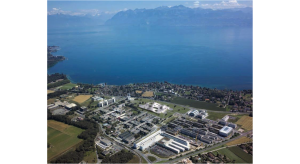Eligible IB Courses
- All languages
- Economics
- Business and management
- Geography
- History
- Biology
- Chemistry
- Physics
- Mathematics standard or higher level
- Mathematics,
- Either physics or chemistry
- One modern language.
Minimum IB Points
The Swiss technical universities require a minimum of 38 (out of 42 points) not counting bonus points while the other universities require 32 (out of 42 points) not counting bonus points. Note that although Swiss universities do not count the bonus points, they do require the full IB diploma. Most application deadlines are prior to the availability of IB exam results and decisions are available after the results.
For students with a minimum of 32 (out of 42 points) not counting bonus points, EPFL offers the CMS, or Special Mathematics Course. Students who take this preparatory year program and pass the exams at the end of the year can then continue in any of EPFL’s bachelor programs. This well-regarded program might also serve as an excellent transition year for students coming from an IB program into the Swiss system, especially for those also transitioning in the language of instruction.
This helpful document from the University of St. Gallen makes the general Swiss requirements more understandable and concrete. It lists specific combinations of IB courses at higher and standard level along with total points achieved, and then indicates which meet their admissions criteria versus those that do not.
Language Requirements
The last requirement is language proficiency for students whose mother tongue is not the university’s language of instruction or who were not educated in that language. It may be necessary to provide a certificate demonstrating B2 to C1 level language proficiency or pass a language test.
Don’t Forget Plan B and Plan C
Given the high IB marks required for admission to Swiss universities, students should always have a plan B, which might mean going to university outside of Switzerland. Once a student starts at a Swiss university, it is also best to consider a plan C since a significant percentage of students don’t pass the first year. Using EPFL as an example again, only about half of students complete the first year. Students are typically allowed to retake the first year once but others move on to other universities or look for other possibilities.
Disclaimer: This article attempts to provide an accurate summary of the IB recognition policies of Swiss universities but no responsibility is assumed for inaccurate information. Always, always check with the website of any university you are considering for their latest information or directly with their admissions office if there are any discrepancies.
